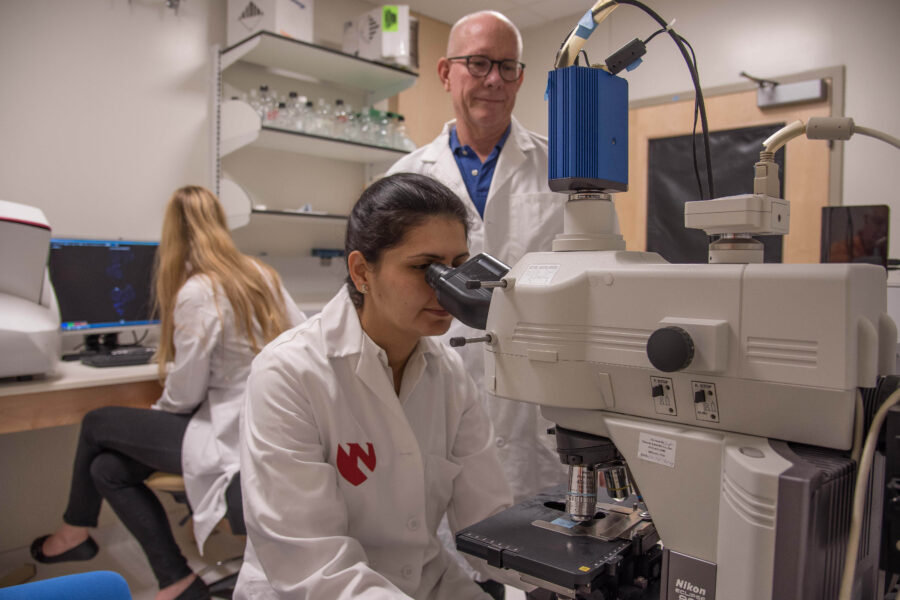The UNMC H.O.P.E. program was started in 2002 by Tony Hollingsworth, PhD, in response to a need in the scientific community for cancer and non-cancer tissues to help with cancer research efforts at UNMC and around the world.
It is the program’s H.O.P.E. and mission to Honor Our Patients Every day by having an impact on patient survival and quality of life. This program allows patients to continue their fight against cancer posthumously by donating their tissues to ongoing cancer research after death.
The program’s primary areas of focus are hepatopancreatobiliary cancers (pancreas cancer, cholangiocarcinoma, and cancers of gallbladder and ampulla of vater) and prostate cancer. The establishment of the prostate H.O.P.E. program in 2019, by Chad LaGrange, MD, and supported by Ray Bergan, MD, already has resulted in exciting new developments in prostate cancer research. These organ donation for research programs allow physicians and scientists to obtain cancer and unaffected tissues in a timely manner, later studying the samples to better understand the genetics of cancer and ultimately help detect, prevent and treat cancer in the future.
The study is done by a team of doctors, nurses and researchers who recognize the importance of, and the sacrifice made by, every donor and their family. That is why, as a team, they work every day to learn about and fight cancer. To date, H.O.P.E. donor tissues have led to key findings that have aided in:
- The study of earlier detection of pancreas and prostate cancer;
- Imaging techniques to better visualize tumors at their earliest stages;
- Developing model systems to test new and existing treatments to better fight cancer;
- Determining how cancer cells develop resistance to certain treatments;
- Studying how and why cancer spreads to certain organs;
- Identification of genes important in the spread of cancer; and
- Understanding how cachexia, or cancer-related muscle weakness and wasting, occurs and how it might be relieved to help patients fight the disease
H.O.P.E. also has partnered with Live On Nebraska, here in Omaha, to offer individuals and their families an option for donating non-cancer tissues for research, that will help in disease and cancer study. Live On Nebraska works tirelessly to provide lifesaving organ and tissue donation services in Nebraska, and the surrounding region, and this collaboration allows for even more opportunities for every donor to make a difference.
“As a principle, we believe it is important to expand the understanding of these diseases and commitment to overcoming them, by integrating clinicians, graduate students, medical students, postdoctoral fellows, academic faculty, participants in the UNMC Summer Undergraduate Research Program, and other university and hospital personnel, in all aspects of tissue donation,” said Dr. Hollingsworth.
“The recently established UNMC Pancreatic Cancer Center of Excellence (PCCE), with a focus on quickly advancing early detection, diagnostics, prevention and treatment of pancreas cancer, will serve to enhance these goals and will have a profound impact on the next generation of researchers and physicians seeking to make a difference in patient lives.”
For more information on this unique program that focuses on clinical, research and educational growth, contact Paul Grandgenett, PhD, at UNMC and/or visit the PCCE website or the UNMC Pancreatic Cancer SPORE website.
